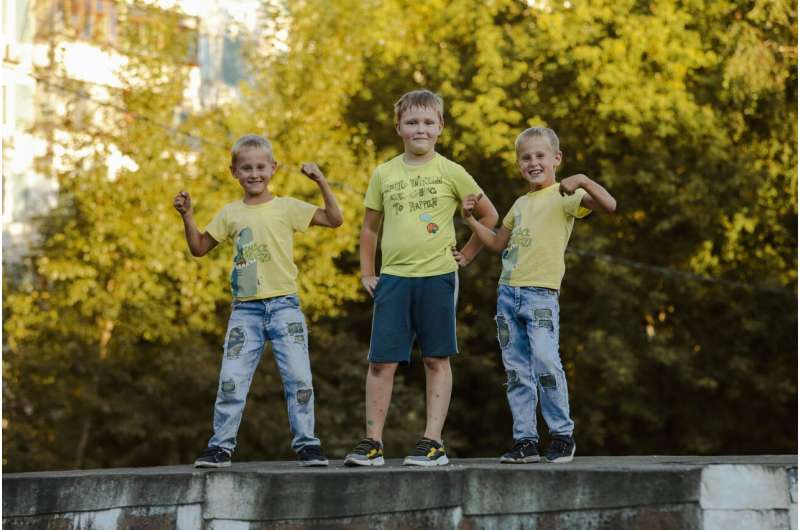December 24, 2024 report
This article has been reviewed according to Science X's editorial process and policies. Editors have highlighted the following attributes while ensuring the content's credibility:
fact-checked
peer-reviewed publication
trusted source
proofread
Middle children grow up to be more honest and cooperative than only children, study suggests

A pair of psychologists, one with Brock University, the other with the University of Calgary, both in Canada, has found evidence suggesting that middle children who grow up with multiple siblings tend to be more honest and cooperative than children who grow up with no siblings.
In their paper published in the journal Proceedings of the National Academy of Sciences, Michael Ashtona and Kibeom Leeb, describe how they analyzed data for thousands of people who had filled out profiles on a personality website, and what they learned by doing so.
Results of efforts aimed at trying to find out if birth order in a family can be associated with generalistic personality profiles have been mixed. Some researchers claim to have found patterns while others have found none—and some have found fault with claims made by others. Because of this, it is not known if such patterns exist. In this new study, the researchers took a new approach—they looked for personality differences between children who grew up with varying numbers of siblings and children who grew up with none.
Prior to this new work, the research pair developed what they describe as a categorization of six key dimensions of personality—Honesty-humility, Emotionality, eXtraversion, Agreeableness (versus anger), Conscientiousness and Openness to experience (HEXACO). They also created and posted a website that visitors could use to conduct a HEXACO personality inventory. The new work involved analyzing data from 710,797 people who had visited the site and completed the inventory.
The researchers found middle children (those with both older and younger siblings) had the highest scores for honesty-humility and agreeableness. Next in order were youngest siblings, oldest siblings, and then only children. The researchers also found that the number of siblings a person had growing up also influenced personality—the more siblings a person had, the higher they scored on the same two traits.
They suggest their results follow logically—more siblings means more compromises by all, leading to agreeableness. It also leads to more honesty, because getting away with lies grows more difficult as family size increases.
More information: Michael C. Ashton et al, Personality differences between birth order categories and across sibship sizes, Proceedings of the National Academy of Sciences (2024). DOI: 10.1073/pnas.2416709121
Journal information: Proceedings of the National Academy of Sciences
© 2024 Science X Network





















